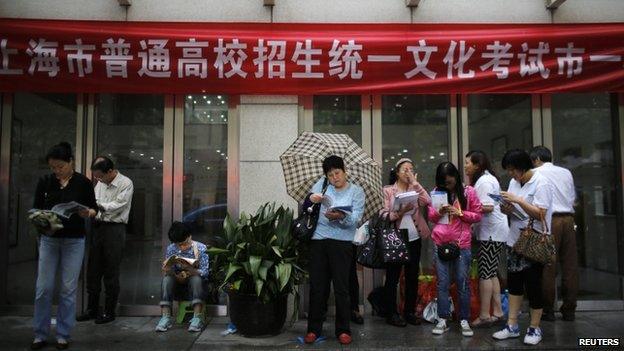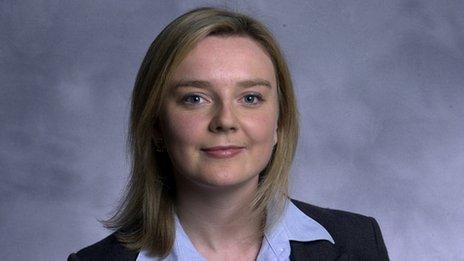Shanghai visit for minister to learn maths lessons
- Published

Shanghai in China is the top education system in the international Pisa tests
Education Minister Elizabeth Truss is to lead a fact-finding mission to Shanghai to see how children there have become the best in the world at maths.
Ms Truss and a delegation of experts will visit schools and teacher-training centres in the Chinese city next week.
They will study the successful methods with a view to possibly adopting them in schools in England.
Last year the UK's maths and science education was placed 50th out of 148 countries by the World Economic Forum.
Shanghai's 15-year-olds topped the 2012 international Pisa tables for maths, while England was ranked in 26th place.
The top five places were all taken by south-east Asian jurisdictions - with 15-year-olds in Shanghai judged to be three years ahead of their UK peers in maths.
'Can-do attitude'
The government acknowledges that England's performance in maths has stagnated while other European countries, such as Germany and Poland, have improved.
It also points to research, published by the OECD, that suggests the children of manual workers in Shanghai and Singapore do better in maths than the children of highly paid professionals in the UK.
The OECD's Andreas Schleicher said there was nothing inevitable about the weaker academic performance of poorer pupils.
The delegation to China
will include the leader of the Inspiration Trust of academies, a primary school head, and the director of the National Centre for Excellence in the Teaching of Mathematics.

Shanghai children are "streets ahead" in maths, says Elizabeth Truss
Ms Truss said children in Shanghai were "streets ahead" of their UK counterparts and believes it is "teaching practices and a positive philosophy that make the difference".
"They also have a can-do attitude to maths, which contrasts with the long-term anti-maths culture that exists here", she said.
"This visit represents a real opportunity for us to see at first hand the teaching methods that have enabled their young people to achieve so well in maths."
She said poor performance in maths was threatening the country's skills base and weakening the economy.
"The reality is that unless we change our philosophy, and get better at maths, we will suffer economic decline."
- Published4 February 2014
- Published10 July 2013
- Published8 July 2013
- Published8 March 2013